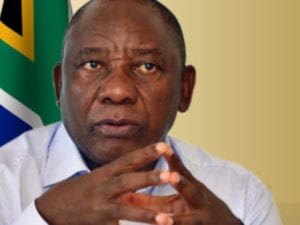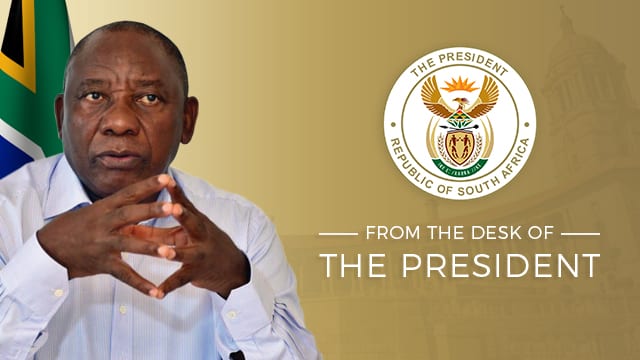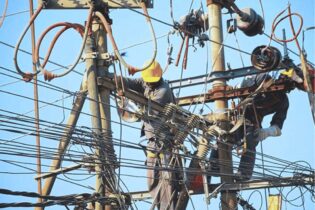President Cyril Ramaphosa says the South African economy is in the throes of the anticipated fallout due to the global crisis.
In his weekly newsletter on Monday morning, Ramaphosa acknowledged that the country is facing what he calls, a ‘job loss tsunami’ as struggling businesses are closing down and starting to retrenching workers due to the impact of the Covid-19 lockdown. “Last week a number of companies announced plans to retrench staff. From aviation to construction, from entertainment and leisure to hospitality, companies have indicated their intention to retrench staff because of heavy losses incurred over the past three months. “In other cases, businesses are closing permanently. Small businesses whose turnover has been wiped out will be even harder hit.” Ramaphosa says South Africa is not the only country facing a jobs crisis. “In Italy, the UK, the US, Germany, India, China and nearly every country that had imposed some form of lockdown, jobs have been lost or hours of workers reduced.” In April the International Labour Organisation forecast there would be around 305 million job losses worldwide. The situation of workers in the informal economy is even worse, with an estimated 1.6 billion workers in danger of losing their livelihoods. There are no quick-fixes More than 100 days after the outbreak of the coronavirus pandemic in South Africa and after two months of a nation-wide lockdown, the president made it clear that the road ahead is still long and is going to be a hard one. for the nation. “There are no quick-fixes and we have to be realistic about our prospects, especially about the time it will take for our economy to recover. Even the advanced economies will contract substantially because of Covid-19 and it will take a long time for economic output to return to pre-pandemic levels. “For a country such as ours, which was already facing an unemployment crisis and weak economic growth, difficult decisions and difficult days lie ahead. We would urge that the difficult decisions to be taken are taken with care and with due regard to balancing the sustainability of companies and the livelihoods of workers. It is important that whatever is done is underpinned by ensuring a just transition to all concerned.”Ramaphosa furthur said that he believes that measures put in place to protect local businesses during the lockdown in the form of loans, tax relief, debt restructuring, extended credit lines and retail rental exemptions are continuing to provide vital support.
“We remain optimistic that as we gradually return to normalcy, and as we forge ahead with the economic reform measures embarked upon earlier this year, that the growing investment levels we were seeing before coronavirus hit will slowly but surely return.” However, he also admits that these can only go so far and that difficult decisions will be made. This week the Minister of Finance will table a revised national budget in Parliament, ” difficult decisions will be made in the coming weeks and months as we seek to reprioritise our programmes, manage public spending and scale back on projects where necessary.” Some good news The announcement last week by Amazon that it is on a drive to hire up to 3,000 South Africans for a variety of positions is a welcome signal, says teh president. Just like the announcement that a local energy storage company Metair has secured a number of contracts from the Ford Motor Company, and that the pan-African cloud and data solutions entity Africa Data Centres has acquired a hi-tech data centre in Johannesburg. On Tuesday, the inaugural Sustainable Infrastructure Development Symposium of South Africa is due to take place. At this symposium, a number of catalytic infrastructure projects in water, transportation, energy, digital infrastructure, human settlements and agriculture will be showcased. “Project sponsorship has been sought from the private sector, multilateral development banks, development finance institutions, asset managers and commercial banks.” READ THE FULL NEWSLETTER HERE:







